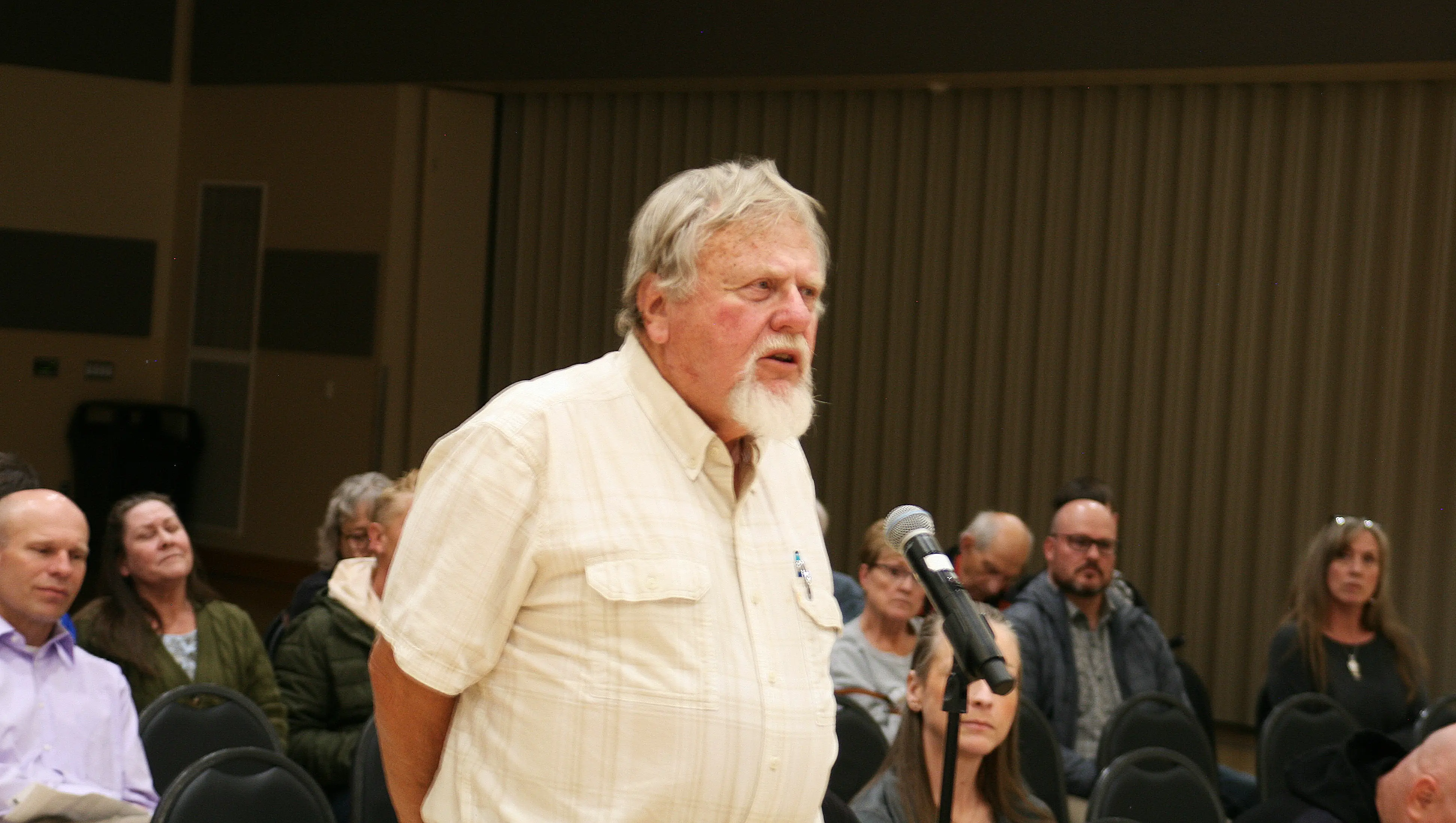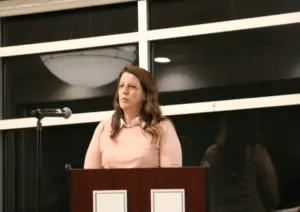
By Aidan Mortensen | KOAL News
On Monday, Nov. 3, Utah GOP Political Issue Committee (PIC) Utahns for Representative Government held public hearings across the state – including at the Jennifer Leavitt Student Center – for the PIC’s initiative to overturn voter-approved Proposition 4, Utah’s anti-gerrymandering law.
As attendees entered the forum, they were presented with a fiscal analysis from Legislative Fiscal Analyst Jonathan Ball, who found that,” if the Repeal of Independent Redistricting Commission and Standards Act initiative passes, the state could avoid approximately one million dollars in redistricting-related expenses every 10 years.”
Opening the hearing was Kendra Seeley, who explained the PIC’s reason for hosting the meeting. “On Friday, Oct. 24, A group of Utahns filed what is known as a direct initiative with the Lieutenant Governor’s office. The proposal is a repeal of what is commonly referred to as Proposition 4.”
She continued, explaining her reasoning for supporting the initiative,” I’m an attorney here. And I took an oath to support the Utah Constitution. I also believe in the principles of representative government. Under Section nine, article one of the Utah Constitution, it says the legislature shall divide the state into Congressional, legislative, and other districts accordingly. Not the governor, not a bureaucrat … Prop. 4 created an unelected commission that was to administer the duty specifically granted to the people’s representatives in the legislature, and therefore, I believe it violates the Utah Constitution.”
When initially approved by voters in 2018, Prop. 4 passed by .68%. Seeley stated how she believed other mitigating factors may have influenced voter turnout during this election: “On the ballot that year was also medical marijuana, Medicaid expansion, and so there were a lot of issues that were on the ballot that year. That could have influenced that vote and the people that showed up.”
Following Seeley’s remarks, the floor was opened for an hour of public comment, during which residents of Carbon County shared their concerns about the proposal.
“It seems to me that it was the people themselves that passed Prop. 4,” said Katy Corneli of the initiative. “And yes, the legislature is responsible for representing us, and they work for us. And that’s why I don’t quite understand why, when the people themselves passed it, the legislature decided that it doesn’t actually respect our values.”
Price resident Parker Young spoke out against the savings the fiscal note estimated if Prop. 4 was overturned,” if I’m going to be honest, that seems like a little low amount of money for a state that, as of the 2024 fiscal year, took in and distributed $16 billion of taxes.”
Young added,” That’s a hundred thousand dollars a year. That isn’t really saving. I work at a little coffee shop, and we make that in a month and a half. Trying to repeal a bill that’s supposed to target gerrymandering for a coffee shop’s month-and-a-half revenue doesn’t seem very helpful for the state.
Attendees continued to voice their displeasure with the initiative, with one resident asking for “fair, clear and reasonable districts defined by data” and another saying that the measure would make it so “representatives are choosing who gets to represent them.”
Overall, attendees shared the sentiment that they were “skeptical” of the strategy being used by the legislature and by the PIC for the initiative. Others called for members of the legislature to listen to the people,” We need them to listen,” said Jim Piacatelli of Price.
Addressing Seeley, Carbon County Democratic Party Chair Alan Sumnall stated,” I have not heard one person speak other than yourself, speak up in favor of this petition.”
He continued,” Do the Republicans in Carbon County just not give a damn? Utah should be better than this. We love this state. We love all the people in this state … Ultimately, the way things have been conducted the last few months is absolutely sneaky, and it is underhanded, and it is below what I would expect from legitimate conservative voices and conservative concerns.”
Closing the meeting, Seeley spoke about what comes next for the initiative: the signature-gathering process. Due to Utah’s strict referendum laws, sponsors must obtain signatures equal to 8% of the number of active voters statewide, over 144,00, and meet signature targets and in 26 of the 29 Senate Districts.
For those who missed the Carbon County Public hearing, a second hearing will be held in the Emery County Administration building in Castle Dale on Monday, Nov. 10, beginning at 6 p.m.

